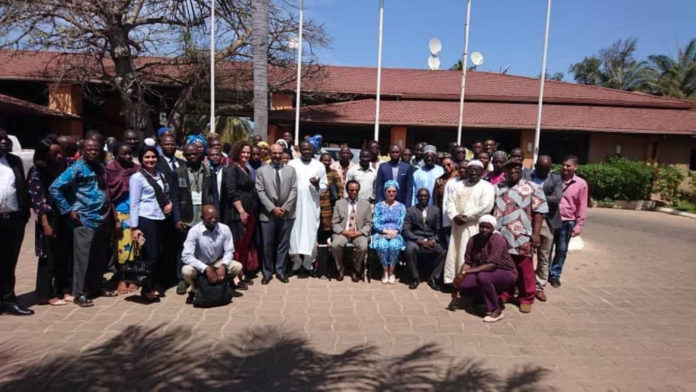By Fatoumatta K Jallow
National Nutrition Agency (NaNA) in Collaboration with UNICEF on Monday 25th March 2019 launched the Gambia 2018 Survey Report on Macronutrients and Dissemination.
According to the Survey Report, the objective was to obtain updated and reliable information on the prevalence of micronutrient deficiencies and nutrition-related to non-communicable diseases, in children 0-59 months of age, and pregnant women in the Gambia.
These results will enable stakeholders to formulate evidence-based interventions to improve the nutritional status of these vulnerable groups.
Key nutrition indicators assessed during the survey included the prevalence of anemia and malaria parasitemia in children, non-pregnant women; deficiencies of iron and vitamin A in children and non-pregnant women. Also prevalence on diabetes in non-pregnant women; hypertension and iodine status in non-pregnant and pregnant women; childhood wasting, stunting and under nutrition; under nutrition in non-pregnant and pregnant women; child and adult overweigh and obesity.
Officials of the Agency said the Survey Report Recommendations is to reduce under nutrition, anemia and iron deficiency in children and women. It is disclosed during the presentation that the result shows that most common types of anemia in women and children is nutritional anemia. The report discloses that Iron deficiency is the major contributor to anemia in children and women.
It is stated that it is also aimed at reducing vitamin A deficiency in children. Findings also show that vitamin A deficiency affects almost 20% of children in The Gambia, adding that the severity of this deficiency is significantly higher in some Local Government Areas.
In highlighting some of the solutions, it is stated in the report that to address this severe public health problem, multiple approaches should be used.
These include reducing the prevalence of overweight and obesity in women, for which it states nearly one-third of non-pregnant women, were classified as either overweight or obese, with the highest proportion in the urban area and among women resident in wealthier households.
Another solution underscored is to increase median urinary iodine concentration. The report discloses that only a small proportion of the salt consumed in The Gambia is adequately fortified; which it stated leads to low median urinary iodine concentrations in some population sub groups.
UNICEF Representative said the survey report required a regular interval to inform policy development for government. This is said to be helping the regulation of private sector and development partners especially for nutrition. “This existing policy provides guidance in planning, stabilizing appropriate and relevant intervention to address health challenges,” the UNCIEF official underscored.



















